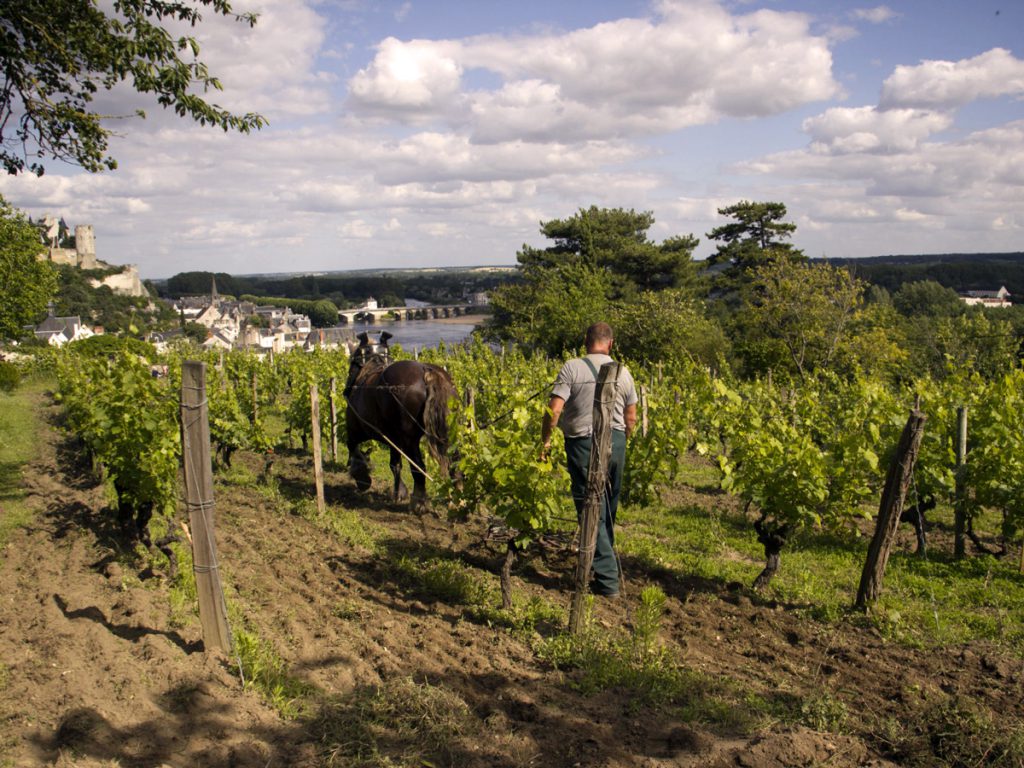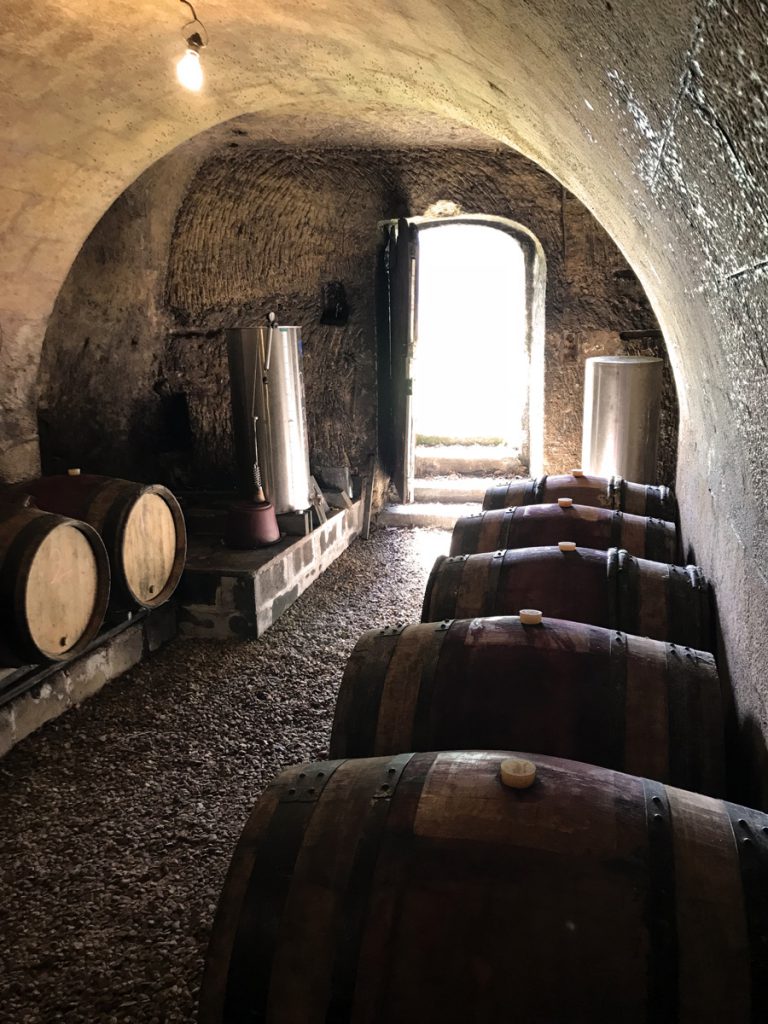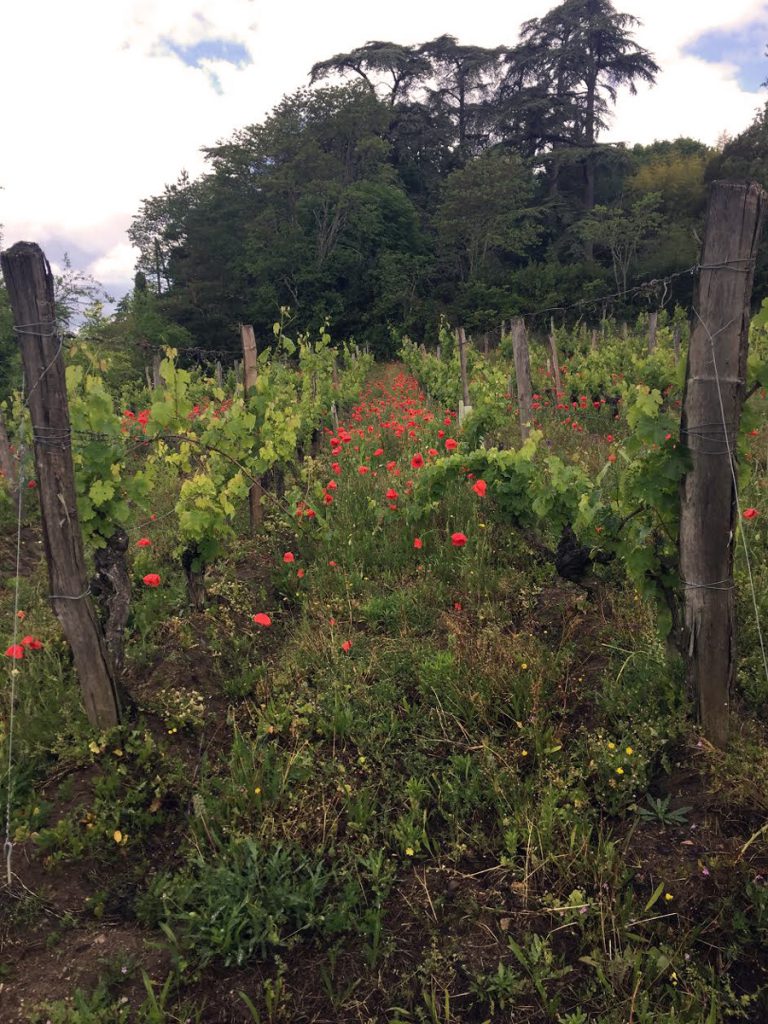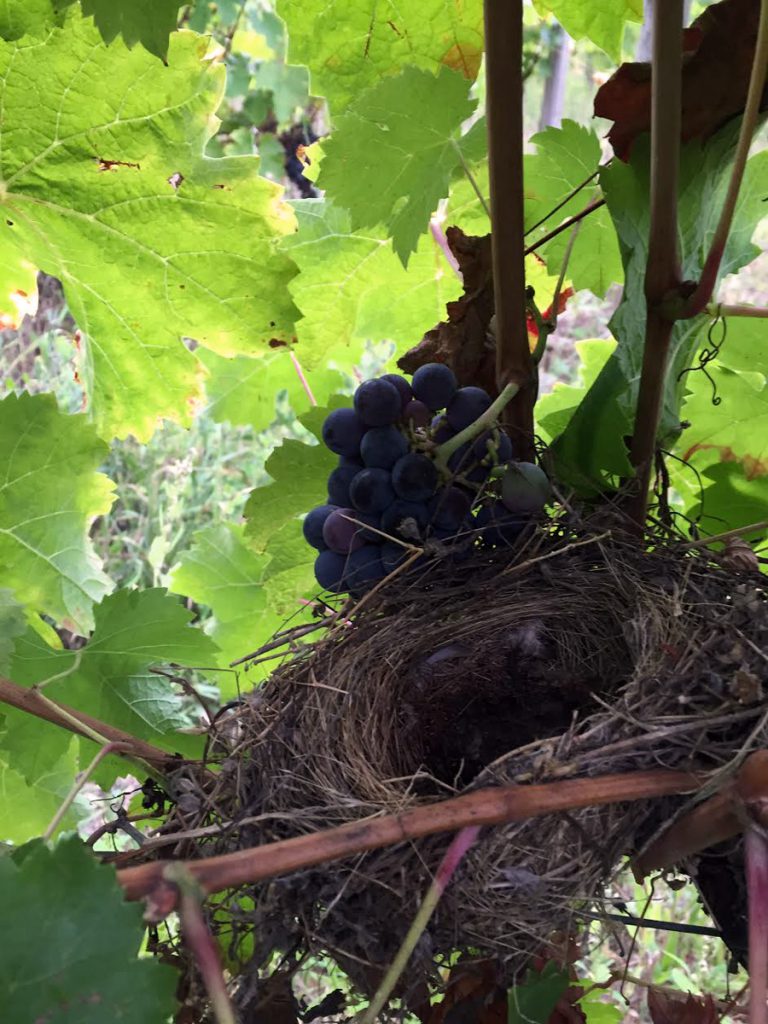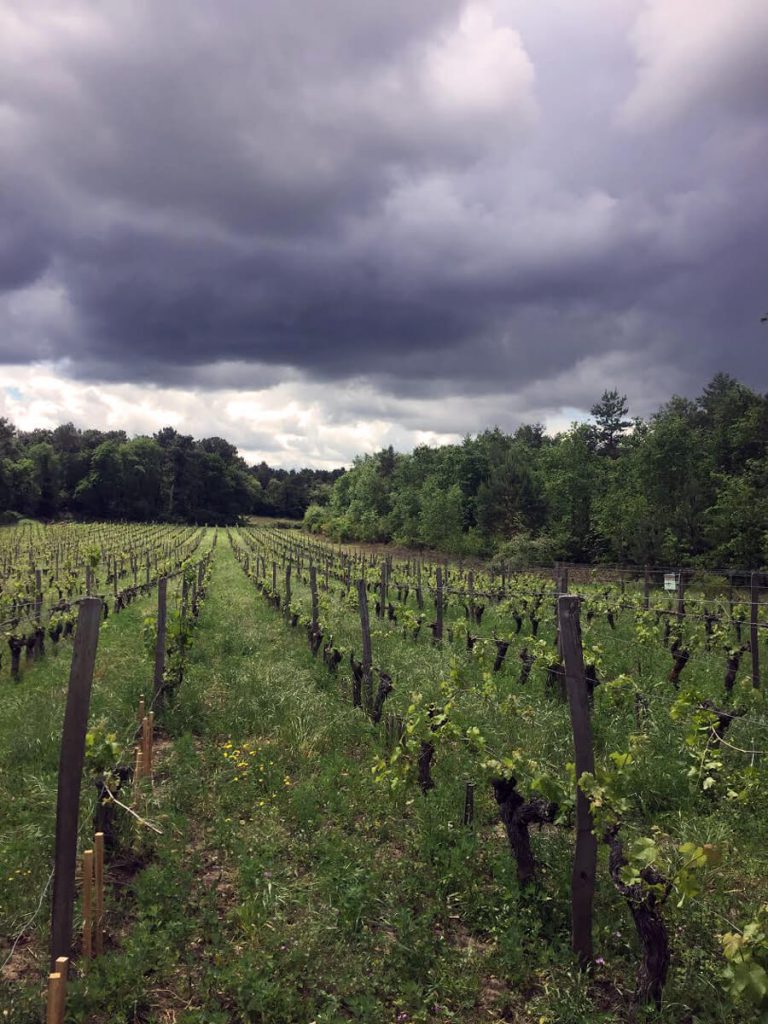THE
VINES – 100% Cabernet Franc
The Clos, or walled vineyard, is divided into 4 separate vine plots, each surrounded by gardens, hedges, woods – perfect refuge for insects, birds and fauna. The East, South/East facing vineyards overlook the river Vienne. They are planted with 60-90 year-old Cabernet Franc vines.
THE
TERROIR / SOIL
Light sandy/clayey top-soil. With such a thin layer of topsoil the roots have no alternative but to plunge into the compact chalk subsoil, locally called tuffeau. This gives the specific chalky taste to the wine.
BIO-DYNAMIC
FARMING
As from 2010, the soil is lightly tilled with the help of a plough horse. The infrequent shallow ploughing enables the wild flora to express itself in the vineyard. The plough horse is my ‘weed killer’, bought in only when the vegetation becomes too invasive. My hens are also meant to do their bit.
Bio-dynamic
concoctions are sprayed with a backpack sprayer. The tractor is used
only when absolutely necessary, in order to avoid compacting the
soil.
A
VERY TRADITIONAL VINIFICATION
The grapes are hand-picked and hand de-stemmed. The grape juice is then left to ferment in a large oak vat. Once the maceration/fermentation is finished, the wine is transferred to oak casks and kept in the chalk cellars. The wine is cask aged for up to 2 years, at a constant natural temperature of 12°C.
THE
CASKS
I purchase one new oak cask a year. The rest of the casks I source from Burgundy. The second-hand barrels will have aged one vintage in them when I buy them. In this way I avoid imparting new oak flavours to my wine. The casks come from the very best domaine in Burgundy. A guaranty of absolute top quality French oak.
BOTTLES
The Clos des Capucins is bottled without filtering. Annual production runs to a few thousand bottles (magnums included). Magnums are the ideal size to enable the wine to mature gently.
RED
CHINON
2011 was my first vintage at the Clos des Capucins. My main role at the domaine is simply to enable the ‘terroir’ to express itself to the full. The different vintages are clearly cut from the same cloth ! Deep dark colour with an intense, velvety texture. Red fruit, raspberries on the palate, and an exceptional structure combining freshness and elegance.
The unique ‘terroir’ at the Clos des Capucins produces a red that will age effortlessly from 5 – 10 years or longer. If drunk early, it is best to decant a few hours before drinking, and so force the wine to open up. Serve at 14°C.
